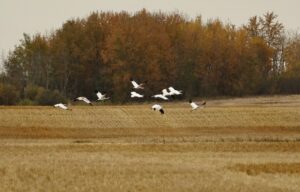
Travel
A Saskatchewan road trip in search of whooping cranes
In the mid-20th century, the elusive birds numbered in the dozens. Thanks to decades of conservation efforts, they appear to be making a comeback.
- 1444 words
- 6 minutes
This article is over 5 years old and may contain outdated information.
Wildlife
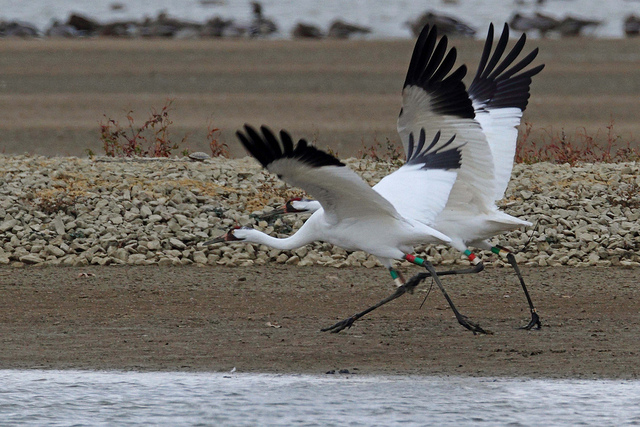
Sites owned by the United States military could one day be used as stopover sites for migrating wild whooping cranes making the almost 3,900 kilometre journey from Wood Buffalo National Park in Canada to Aransas National Wildlife Refuge in Texas.
“Stopover places are just as important as wintering and nesting areas because they can’t fly in one trip,” Chester McConnell, a wildlife biologist and co-founder of the Alabama-based Friends of the Wild Whoopers, told the Victoria Advocate in September.
The Advocate reported that McConnell and Felipe Chavez-Ramirez, science adviser for Friends of the Wild Whoopers, are assessing 45 sites that fall in or near the flock’s migration corridor for possible stopover habitat.
McConnell told the Advocate that ideally the birds would have protected habitat about every 100 miles (160 kilometres) along their migration corridor, which passes through North Dakota, South Dakota, Nebraska, Kansas and Oklahoma.
A U.S. Geological Survey report published in September found that lands with some type of protection covered about 10 per cent of the migration corridor used by whooping cranes.
McConnell told the Advocate that acquiring land for habitat is expensive, but that partnerships between military installations and wildlife groups could cut down the cost.
Are you passionate about Canadian geography?
You can support Canadian Geographic in 3 ways:
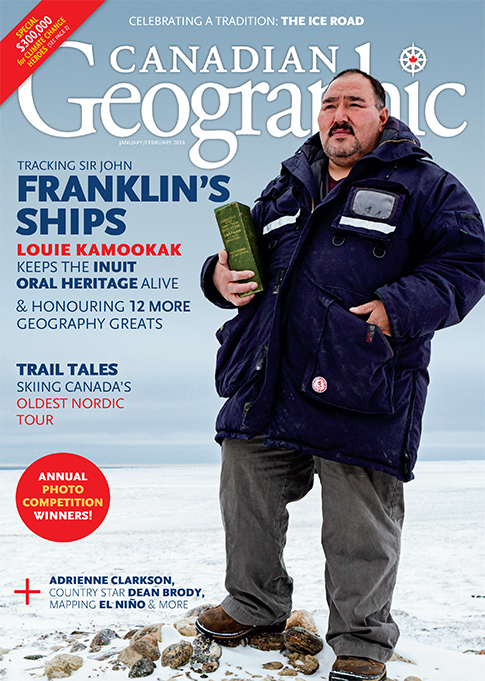
This story is from the January/February 2016 Issue

Travel
In the mid-20th century, the elusive birds numbered in the dozens. Thanks to decades of conservation efforts, they appear to be making a comeback.

Exploration
A century after a Canadian was instrumental in charting the world's highest peak, a fellow Canadian reflects on the magnetism of Everest
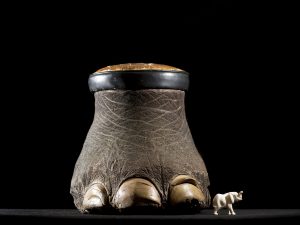
Wildlife
An estimated annual $175-billion business, the illegal trade in wildlife is the world’s fourth-largest criminal enterprise. It stands to radically alter the animal kingdom.
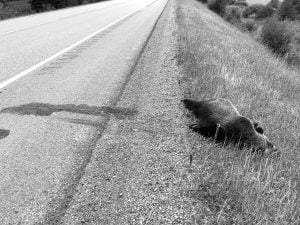
Wildlife
This past summer an ambitious wildlife under/overpass system broke ground in B.C. on a deadly stretch of highway just west of the Alberta border. Here’s how it happened.